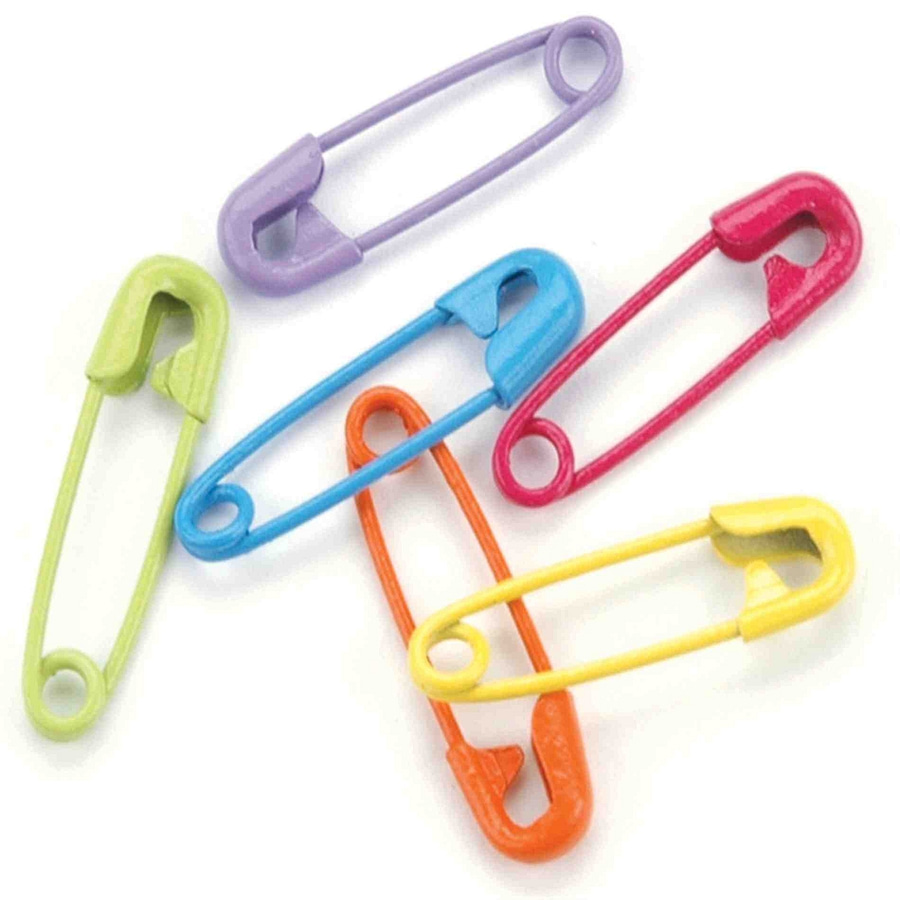Safety pins: A new symbol of safety and controversy
As a result of the most recent election, there has been a significant increase in the number of people who sport safety pins with a purpose. Those who wear safety pins on their clothing advocate for anti-discrimination. The pin is a symbol that the individual wearing it represents a safe and accepting person. They appear to have also gotten the reputation of being anti-Donald Trump.
Zack Linly of The Washington Post described this trend as usually consisting of white people wearing safety pins on their clothing to show that they are against Donald Trump and the “toxic culture of uber-conservatism that comes with him and thus dubbing themselves an “ally” to people of any and all demographics that have been deemed vulnerable.”
It’s not hard to see why minorities and women need support under a Trump presidency. Since the election, racism, sexism, and all around discrimination have spiraled out of control, more than they had before. With white supremacy groups endorsing and hailing to President Trump, and some spouting remarks on how it is okay to sexually assault women now that we have an alleged rapist as president, people are growing scared. It appears that the fear is not sprouting from Donald Trump himself, but those who believe this sort of behavior is okay due to Trump winning the presidential election.
Days after the election, in Cambridge, MA a USPS worker allegedly said to a Hispanic man, “Go back to your country. This is Trump land. You ain’t getting your check no more.”
Around the same time, 24-year-old Muslim high school teacher Mairah Teli of Dacula, Georgia was given a note, presumably by a student, saying that she was not allowed to wear her headscarf in this country anymore, and that she should “tie it around [her] neck and hang [herself] with it.” In effect, the Muslim community is questioning whether or not it is safe to wear its religious articles in public.
DHS History and Advanced Placement Government and Politics Teacher Caitlin McCarron-Deely began wearing a pin almost immediately after the election in attempt to “counter the hostility” of the increase in hate crimes.
“I wear a safety pin every day to show that I am a person someone can turn to if they feel unsafe or harassed, and that I support them and their rights,” said Mrs. McCarron-Deely. She added that she is spreading a message of support, and that it is also important to find other ways to stand up for one another.
DHS junior Jack D’Atri said that he can’t stand the stupidity of safety pins. “It’s Trump’s America now!” he said. “After Trump won in a victory that even had the best pollsters baffled, people started showing ‘concern’ for minorities, women, Muslims, LGBTs, illegal immigrants, and whoever else fits into that group based on president-elect Trump’s ‘fear-mongering rhetoric,’” said D’Atri. He felt that there is no issue to be solved by pins, and that by wearing them, America is only creating a bigger divide among its population.
D’Atri said that Mr. Trump and the Constitution support equal protection for all citizens, not just a select few. He pointed out the hypocrisy of those rioting while chanting “love trumps hate” when they are being hateful towards those who voted for Mr. Trump. He believes that everyone should do as conservatives did when Barack Obama was elected, and give Mr. Trump a chance.
DHS Word History and US History Teacher Andrew Apperson also began to wear a safety pin shortly after the election as well, due to the “growing atmosphere of exclusion” that followed it. By wearing a pin, he is showing that he is an ally for all and is someone to approach when they have a problem. “I hope it catches on, and makes people aware of the responsibility we have to make one another feel safe and welcomed,” said Mr. Apperson.


















Hailey Tetreault • Apr 28, 2017 at 1:32 pm
I never noticed the safety pin symbol, but I think its a nice and simple way of saying what you think without any words